It has been something of a strange offseason thus far. There's plenty of uncertainty regarding the 2020-21 college basketball campaign, when schools will open again and when the season ultimately starts. But that hasn't slowed down the number of players transferring or prospects entering the NBA draft "process." (Process is in quotations because there aren't any individual or agency workouts for NBA teams right now; i.e., there's not really a process.)
There's also the added wrinkle of the G League intrigue. We've already seen two high school seniors decide to join the new G League program rather than go to college: top prospect Jalen Green and five-star forward Isaiah Todd, who had been committed to Michigan. The G League might not be done pursuing players either.
The next key date to keep an eye on is April 26. Underclassmen have until midnight on that day to submit their name into the NBA draft -- but once they're in, they don't have to withdraw until June 15. That's all subject to change, too, given the global coronavirus pandemic.
Since the first version of these rankings that ran on March 21, there have been a multitude of changes. Nearly every roster has undergone changes -- but No. 1 remains the same.
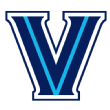
1. Villanova Wildcats
Previous: 1
Villanova doesn't move from the top spot. The Wildcats still will have to wait and see what Saddiq Bey decides to do in terms of the NBA draft, but they received positive news when freshman forward Jeremiah Robinson-Earl announced he was returning. Fellow starters Collin Gillespie, Justin Moore and Jermaine Samuels are all expected back, as well. There are two key players to keep an eye on, especially if Bey keeps his name in the draft: Bryan Antoine and Caleb Daniels. Antoine is a former five-star recruit and a big-time scorer who barely played last season due to a shoulder injury, while Daniels is a transfer who sat out last season after averaging 16.9 points at Tulane. Those two could add some perimeter pop to Jay Wright's roster. If Bey goes back to Villanova, the Wildcats are the clear No. 1. But even if he doesn't, a third national championship in six years for Wright's program isn't out of the question.
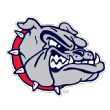
2. Gonzaga Bulldogs
Previous: 3
Assuming things trend the way they're going, Villanova vs. Gonzaga is going to be a debate all offseason. Right now, I'm leaning toward the Wildcats due to the potential NBA draft decisions of Filip Petrusev and Corey Kispert, as well as the potential for elite guard Jalen Suggs to explore the G League option. But there's a good chance Gonzaga ends up at No. 1 entering next season if all three players are in Spokane for the 2020-21 season. A starting five of those three, Joel Ayayi and Drew Timme would be one of the most talented and balanced quintets in the country. All five can score, and Suggs would provide the X factor that could take Mark Few's team over the top. Few is also bringing in two other ESPN 100 prospects and Southern Illinois grad transfer Aaron Cook, who averaged 15.0 points through six games before suffering a season-ending injury. There's depth, there's experience and there are NBA players on this roster -- if things go according to plan.
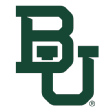
3. Baylor Bears
Previous: 4
I think there's a clear tier drop entering next season after Scott Drew's team, with the Bears rounding out what I perceive as a definitive top three (in whichever order you prefer). Baylor should bring back four starters from last season's Final Four contender, assuming MaCio Teague returns to school and Jared Butler doesn't enter his name into the NBA draft. If both return, Drew will have his elite perimeter back: Butler, Teague and Davion Mitchell, an athletic two-way player who ignites the team's defense. Presbyterian transfer Adam Flagler (15.9 PPG) and ESPN 100 point guard L.J. Cryer add even more backcourt help. The questions will be up front, although Drew is bringing in some reinforcements to help undersized 4 Mark Vital. ESPN 100 big man Dain Dainja is a physical player inside, and Zach Loveday will provide size and depth. Could Tristan Clark return to form after a season spent mostly at less than 100%? That could be the difference for Bayor in 2020-21.
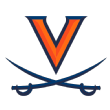
4. Virginia Cavaliers
Previous: 8
If there was a time to get coach Tony Bennett while he was down, it was last season, from early November to about mid-January. That party is over, and it was over for the final six weeks last season, when the Cavaliers went 11-1 down the stretch with wins over Duke, Florida State and Louisville, ultimately finishing just one game from an ACC regular-season title. Bennett does lose Braxton Key and Mamadi Diakite from that group, but the offense should be far more dynamic with Marquette transfer Sam Hauser (14.9 PPG, 7.2 RPG) and ESPN 100 scorer Jabri Abdur-Rahim entering the fold. Jay Huff should take the next step up front, and Kihei Clark returns at the point guard spot. Another key will be Tomas Woldetensae continuing his prolific shooting. He had that reputation coming out of junior college, and although he went through some inconsistent stretches, he made better than 38% of his 3s in ACC play. Throw in a defense that has ranked in the top seven in adjusted defensive efficiency each of the past seven seasons (although it could take some time to jell, as Hauser and Abdur-Rahim weren't known for their defensive prowess), and Virginia will be a national threat once again.

5. Iowa Hawkeyes
Previous: 7
This ranking is of course predicated on Luka Garza returning to the Hawkeyes for his final season of college basketball. My expectation for the past several months is that Garza wouldn't leave early for the NBA, and ESPN ranking him No. 86 among NBA draft prospects only solidifies that thought. If Garza returns, coach Fran McCaffery will bring back all five starters from a team that won 20 games and had one of the elite offenses in the country. Joe Wieskamp and CJ Fredrick were both double-figure scorers, providing some balance alongside Garza, and Jordan Bohannon should also be back after redshirting last season to undergo hip surgery. When healthy, Bohannon is an adept playmaker and a knockdown perimeter shooter who should give the Hawkeyes even more options. The defense will have to improve to maintain a top-five ranking, though; Iowa ranked 12th out of 14 teams in adjusted defensive efficiency in Big Ten play.
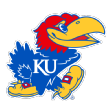
6. Kansas Jayhawks
Previous: 10
Losing All-Americans Devon Dotson and Udoka Azubuike is going to be difficult for coach Bill Self to overcome, but he has lost players to the NBA before and not missed a beat; we expect that to continue. He also has plenty of talent left on the roster. Marcus Garrett, arguably the best defensive player in college basketball, should be one of the best overall players in the country next season, and Ochai Agbaji decided to return and not even test the NBA draft waters. The Jayhawks are bringing in two very talented perimeter pieces in five-star guard Bryce Thompson and elite junior college prospect Tyon Grant-Foster. There are two big questions I have for Kansas. First, point guard play. Garrett can certainly initiate the offense, but expecting him to be a dynamic playmaker in the mold of Dotson, Devonte' Graham, Frank Mason III, etc., seems to be a lot to ask. Then there's inside play. Azubuike was the most dominant physical force in college basketball; is David McCormack ready to fill his shoes?

7. Duke Blue Devils
Previous: 6
At this point, Mike Krzyzewski is used to several players leaving for the NBA draft every season and replacing them with a highly touted recruiting class. This spring, it's Tre Jones, Cassius Stanley and Vernon Carey Jr. going pro -- and five-stars Jalen Johnson, Jeremy Roach and D.J. Steward leading the No. 2-ranked recruiting class in the country. The Blue Devils also mitigated some of the exodus when Wendell Moore Jr. and Matthew Hurt, who had also been rumored to be considering a transfer, both decided to return to Durham. It's going to be a very young team, but Duke will have a couple of veterans to rely upon in Jordan Goldwire and Columbia graduate transfer Patrick Tape, who finally committed to Duke after a couple of false starts. Next year's Duke team should have a bit more individual offensive pop, especially with Johnson and Steward as talented scorers and Roach a tough playmaker. Can Hurt or Moore take the next step?

8. Michigan State Spartans
Previous: 9
It will be a new era of Michigan State basketball, as Cassius Winston has departed the program after four seasons in East Lansing. Replacing Winston will be Tom Izzo's first order of business. Foster Loyer was Winston's backup last season, but he's unlikely to be the permanent solution. ESPN 100 guard A.J. Hoggard could do the job, but he's more of a scorer. Keep an eye on uncommitted Canadian star Karim Mane. Xavier Tillman Sr.'s NBA draft decision is the second thing on Izzo's mind, as Tillman has made tremendous strides during his Michigan State career. There are a couple of X factors, too. Marquette transfer Joey Hauser (9.7 PPG) is eligible after sitting out last season, while the status of Joshua Langford is up in the air. Aaron Henry and Gabe Brown are back on the wings, while Rocket Watts could be poised for a breakout season. Malik Hall took some positive steps as a freshman. There is still a lot to play out over the next couple of months with the Spartans.
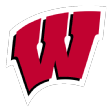
9. Wisconsin Badgers
Previous: 15
If the Badgers carry over their late-season form into the 2020-21 campaign, this ranking will look too low. Greg Gard's team won its final eight games last season to forge a tie at the top of the Big Ten standings, and all five players who started the season finale at Indiana are back -- and they're all seniors. This is going to be an experienced bunch with plenty of continuity. D'Mitrik Trice is the playmaker in the backcourt; Brad Davison is a lightning rod who is also one of the team's best shooters; Aleem Ford can do a little of everything on the wing and came on strong after Kobe King transferred; and Nate Reuvers and Micah Potter are a nightmare duo on the interior. Both Reuvers and Potter can score inside and out, and Potter was absolutely dominant for stretches late in the season. Gard also brings in a five-man recruiting class led by ESPN 100 forward Ben Carlson. If Garza stays in the NBA draft and Michigan State doesn't figure out its point guard and post situations, the Badgers might be Big Ten favorites.
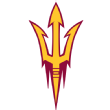
10. Arizona State Sun Devils
Previous: Next in line
Arizona State was the last team left out of our top 25 in March, but the Sun Devils see a big rise thanks to the commitment of top-10 guard Josh Christopher, the program's highest-ranked recruit of all time. Christopher immediately gives coach Bobby Hurley one of the nation's truly elite scorers, someone who can carry an offense. Now Hurley needs star point guard Remy Martin (19.1 PPG) to withdraw from the NBA draft and return to Tempe. Martin, Christopher and Alonzo Verge Jr. (14.6 PPG) would form one of the nation's most explosive perimeter groups. Hurley also landed two transfers who likely will have to sit but could try to receive eligibility right away: former Portland State guard Holland Woods (17.7 PPG) and former Ohio State guard Luther Muhammad, who started 56 games over the past two seasons for the Buckeyes. Romello White leads the way up front, and ESPN 100 forward Marcus Bagley -- the younger brother of Marvin Bagley Jr. -- also could push for a starting spot early.
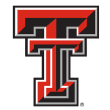
11. Texas Tech Red Raiders
Previous: 12
After reaching the national championship game in 2019, the Red Raiders took a step back last season and were squarely on the NCAA tournament bubble entering the Big 12 tournament. With the new talent entering the program, it shouldn't get to that point again next season. Texas Tech is bringing in the program's best-ever recruiting class, led by five-star guard Nimari Burnett. ESPN 100 prospect Micah Peavy and UNLV transfer Joel Ntambwe (11.8 PPG) could also both fight for starting spots right off the bat. Coach Chris Beard also doesn't have to totally rebuild like he did last season, as starting guards Kyler Edwards and Davide Moretti are both back, as is forward Terrance Shannon Jr. Jahmi'us Ramsey is likely off to the NBA, but the reinforcements are there for the Red Raiders. They could use more size up front this spring but already hit the transfer market for Wichita State transfer Jamarius Burton (10.3 PPG).
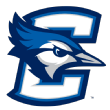
12. Creighton Bluejays
Previous: 2
We had Greg McDermott's program sitting at No. 2 in the country entering the offseason, as it appeared the Bluejays would have all five starters returning from a team that won 11 of its last 13 games and earned a share of the Big East regular-season title. That didn't last too long, as star guard Ty-Shon Alexander announced he was entering the NBA draft. Davion Mintz, who missed last season with an injury but was a two-year starter for Creighton, also decided on the graduate-transfer route and ended up at Kentucky. Double-figure scorer Denzel Mahoney will test the NBA draft process, although he's expected to return to Omaha. It's not all doom and gloom for the Bluejays, though. Mahoney should be able to replace Alexander in the starting lineup, and McDermott has four other starters back. Creighton also should have more size than a year ago, with Jacob Epperson healthy and ESPN 100 big man Ryan Kalkbrenner entering the program. Imagine if Duke transfer Alex O'Connell is immediately eligible, too.

13. Tennessee Volunteers
Previous: 14
After a down year following the departure of three stars and a season-ending injury to Lamonte Turner, coach Rick Barnes should have the Volunteers back near the top of the SEC standings. Let's start with the returnees. Three double-figure scorers are back, with Santiago Vescovi at point guard and John Fulkerson and Yves Pons up front. Freshman Josiah-Jordan James returns as a do-everything starter with size and playmaking ability. Then there's the incoming freshman class, led by five-star guards Jaden Springer and Keon Johnson. Springer brings toughness and playmaking to the backcourt, while Johnson is an amazing athlete. There are also transfers: Victor Bailey Jr. (7.4 PPG) is eligible after sitting out after his transfer from Oregon, and the Volunteers added Sacred Heart graduate transfer E.J. Anosike (15.7 PPG, 11.6 RPG) this spring. Barnes should have far more versatility and depth than a season ago, as well as a nice blend of experience and youth.
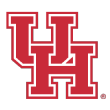
14. Houston Cougars
Previous: 16
Although Houston's NCAA tournament résumé might not have blown away anyone down the stretch of the season, the Cougars were still a top-15 team in adjusted efficiency margin, according to KenPom, and should be even better next season. That does come with a caveat, however, as both DeJon Jarreau and Nate Hinton are testing the NBA draft waters. If both come back, Kelvin Sampson will have one of his deepest and most versatile teams. Jarreau, Hinton, Quentin Grimes and Fabian White Jr. are back as starters, while leading scorer Caleb Mills (13.2 PPG) is one of the most talented guards in the AAC. Marcus Sasser played a key role last season, starting the final 15 games. Tramon Mark was an ESPN 100 prospect in 2020, while Cameron Tyson averaged 13.5 points and shot 42.9% from 3-point range at Idaho two seasons ago. They form one of the deepest perimeter groups in the country. Outside of White, there are questions in the frontcourt -- but I trust Sampson to figure things out.
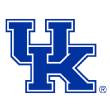
15. Kentucky Wildcats
Previous: 5
Kentucky sees the biggest drop since the first iteration of the rankings. We said at the time the Wildcats had the most up in the air in terms of personnel decisions, and, well, it didn't go exactly as coach John Calipari had hoped. When the dust finally settled, only Keion Brooks Jr. was left standing from a year ago. Tyrese Maxey, Ashton Hagans, Nick Richards and Immanuel Quickley are all going pro, while EJ Montgomery also entered the NBA draft process, Kahlil Whitney left school in January, Johnny Juzang transferred to UCLA and Nate Sestina used up his eligibility. That leaves Brooks, who averaged 4.5 points. Don't feel too sorry for Calipari, though. He brings in the No. 1 recruiting class in the country, led by five-star perimeter players B.J. Boston, Terrence Clarke and Devin Askew. He also added some experience in Creighton grad transfer Davion Mintz and has Kentucky squarely in the mix for Purdue grad transfer Matt Haarms. It's going to take time, but Kentucky will be an SEC title contender when all is said and done.
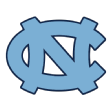
16. North Carolina Tar Heels
Previous: 11
I may have been a little aggressive with my ranking of the Tar Heels in March, slotting them just outside the top 10. Now, I do love this team's talent -- but I question how it's all going to come together. Roy Williams' five best players are likely going to be five-star guard Caleb Love and four big men: Armando Bacot, Garrison Brooks, Day'Ron Sharpe and Walker Kessler. Although Williams loves to play two-big lineups, he's obviously not rolling out a point guard and four post players. Minute and role allocation down low could be a question mark, as will wing scoring. There are options, though. Anthony Harris and Leaky Black return from last season, while R.J. Davis and Donovan Johnson were both ESPN 100 prospects. The Tar Heels are also in a decent position for uncommitted four-star guard Kerwin Walton. A repeat of last season is highly unlikely, even without Cole Anthony.
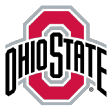
17. Ohio State Buckeyes
Previous: 13
Coach Chris Holtmann has been very busy over the past month or so. The Buckeyes saw sophomore Luther Muhammad and freshmen D.J. Carton and Alonzo Gaffney depart the program via the transfer portal, and they welcomed Seth Towns (16.0 PPG at Harvard), Jimmy Sotos (11.5 PPG at Bucknell) and Abel Porter (5.6 PPG at Utah State) to Columbus. It's a total overhaul of last season's supporting cast, although only Towns and Porter are definitely eligible to play right away next season. As for the returnees, C.J. Walker and Duane Washington Jr. are back on the perimeter, and Kyle Young should start up front. Freshman E.J. Liddell is ready for a big step forward, and California transfer Justice Sueing (14.3 PPG) will provide scoring punch after sitting out. The big question: How does Holtmann replace Kaleb Wesson?

18. Oregon Ducks
Previous: 23
Entering the offseason, we wrote that the biggest need for the Ducks was more backcourt depth with All-American Payton Pritchard ending his time in Eugene and former graduate transfer Anthony Mathis also out of eligibility. So coach Dana Altman went out and landed UNLV grad transfer Amauri Hardy, a playmaking guard who is also the older brother of Jaden Hardy, arguably the top guard prospect in the 2021 class. Hardy joins a perimeter group that already includes returning starters Will Richardson and Chris Duarte, as well as ESPN 100 point guard Jalen Terry. Chandler Lawson and C.J. Walker both showed flashes as freshmen, and N'Faly Dante provides rebounding and shot-blocking down low. The Ducks also have sit-out transfers Eric Williams Jr. (Duquesne) and Eugene Omoruyi (Rutgers) eligible. Oregon is generally one of the most active teams on the market in the spring and summer, so I wouldn't be surprised if this roster isn't set just yet.
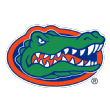
19. Florida Gators
Previous: Next in line
Very few teams have already received hugely positive news from potential NBA draft prospects, but Florida was one of them -- and that's why the Gators move into the top 25 rankings after being on the outside looking in the last time around. Scottie Lewis didn't set the college game alight during his first season in Gainesville, but he's an elite athlete who showed flashes of the two-way ability that made him a five-star recruit coming out of high school, and now he'll be back for a second year at Florida. Leading scorer Keyontae Johnson also announced he wouldn't enter the NBA draft. With those two and Andrew Nembhard presumably back in the fold, the only key piece gone from last season is former Virginia Tech grad transfer Kerry Blackshear Jr. Noah Locke joins them as starters, and coach Mike White also has a very talented group entering the program. Samson Ruzhentsev was a late-blooming ESPN 100 prospect, while sit-out transfers Tyree Appleby (17.2 PPG, 5.6 APG) and Anthony Duruji (12.2 PPG, 6.2 RPG) are also eligible. It should be enough to put last season's disappointing campaign in the rearview mirror.
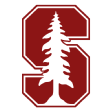
20. Stanford Cardinal
Previous: Unranked
Another Pac-12 team that saw a big jump from the first edition of the rankings, Stanford could be a conference title contender if Tyrell Terry withdraws from the NBA draft. The Cardinal had one of the biggest wins of the spring, beating out the likes of Arizona, USC and North Carolina for elite five-star wing Ziaire Williams. Williams will slot into the starting lineup immediately and provide Jerod Haase with a high-level two-way player and a potential top-five draft pick. He should combine with Oscar da Silva (15.7 PPG) in the frontcourt to create matchup problems for opponents. Terry, one of the most surprising freshmen in the country last season, needs to return for Stanford to reach its full potential. If Terry comes back, Haase will have all five starters returning from a team that was in NCAA tournament position heading down the stretch of the season.
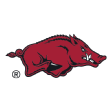
21. Arkansas Razorbacks
Previous: 20
Eric Musselman will have to wait and see what happens with Mason Jones' NBA draft decision, but the spring is where the coach shines most on the recruiting trail -- on the transfer market. The Razorbacks landed two guys who should make an impact next season in Northern Kentucky guard Jalen Tate and New Mexico wing Vance Jackson. Tate is in the mold of Jimmy Whitt Jr., who started for Arkansas last season, while Jackson brings shooting and scoring. Those two join a top-10 recruiting class that includes four ESPN 100 prospects, led by top-40 wing Moses Moody, and three sit-out transfers: JD Notae, Connor Vanover and Abayomi Iyiola. Musselman also welcomes back starting guards Isaiah Joe and Desi Sills. If Jones returns to Fayetteville, Arkansas will have as much talent as anyone in the league.
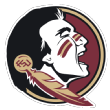
22. Florida State Seminoles
Previous: 22
This feels low for a Leonard Hamilton-coached team, as the college basketball world has collectively underestimated him for the past few years and he continues to surprise in the ACC. That said, the Seminoles lose Devin Vassell and Patrick Williams early to the NBA along with starting senior point guard Trent Forrest, one of the more underrated two-way players in the country. With M.J. Walker the lone returning double-figure scorer, Hamilton will have to turn some of his role players into stars. He has done that in the past, and perhaps the best bet is Balsa Koprivica, a former ESPN 100 prospect. Florida State does bring in some talented pieces, including versatile five-star forward Scottie Barnes and highly touted junior college prospect Sardaar Calhoun. The lack of a point guard and proven production are the question marks.

23. West Virginia Mountaineers
Previous: 24
Most of last season's roster remains intact for Bob Huggins, which raises the question: Which West Virginia team will show up? The one that started 18-4 and looked like one of the best teams in the country, or the one that lost six of its next seven and looked like a surefire one-and-done in the NCAA tournament? Overall, the Mountaineers finished 10th in adjusted efficiency margin, and another year in the program should help some of the younger players develop. The interior duo of Oscar Tshiebwe and Derek Culver should both be back in Morgantown, although Tshiebwe did enter the NBA draft process. The issue during the Mountaineers' slump in the second half of the season came mostly on the offensive end, where they simply couldn't score consistently. Freshman Miles McBride was a bright spot, but West Virginia will need more weapons. Former ESPN 100 prospect Jalen Bridges, who redshirted last season, should provide a boost.
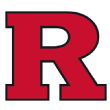
24. Rutgers Scarlet Knights
Previous: Next in line
The Scarlet Knights' season ultimately ended with a ping of sadness after the NCAA tournament was canceled, with the program poised for its first appearance on Selection Sunday since 1991. But Rutgers should be back in position next season and officially get over the hump after 30 years. Coach Steve Pikiell will return most of his key pieces, with starting forward Akwasi Yeboah and reserve Shaq Carter the only departures. Four of five starters return, led by double-figure scorers Ron Harper Jr. and Geo Baker, one of the nation's best big-shot makers. Rutgers also had one of its biggest recruiting wins in recent memory this spring when top-50 recruit Cliff Omoruyi picked the Scarlet Knights over Arizona State and Auburn. Omoruyi was the program's highest-ranked recruit since 2008. Rutgers has momentum right now, and Pikiell is hoping it pays off in a big way next March.

25. Richmond Spiders
Previous: 25
Chris Mooney saw his three best players enter the NBA draft process, although all three are expected to return. Assuming Blake Francis, Grant Golden and Jacob Gilyard head back to Richmond for their senior seasons, the Spiders will return all five starters and their top seven scorers from a team that won nine of 10 to end the regular season and was right in the mix for an at-large berth. It starts on the perimeter, with Francis, Gilyard and Nick Sherod providing a little bit of everything: scoring, playmaking, shooting and defense. Golden saw his scoring numbers dip with the influx of talent last season, but he's a skilled big man who makes the offense tick. Tulane transfer Connor Crabtree also enters the fold; he should provide size and shooting. Overshadowed by Dayton in the Atlantic 10 last season, Richmond should enter the season as the favorite.
Next in line:
Texas Longhorns (previous: next in line)
Michigan Wolverines (previous: No. 19)
Louisville Cardinals (previous: unranked)
UCLA Bruins (previous: next in line)
LSU Tigers (previous: No. 18)
Dropped out:
San Diego State Aztecs (previous: No. 17)
Colorado Buffaloes (previous: No. 21)
